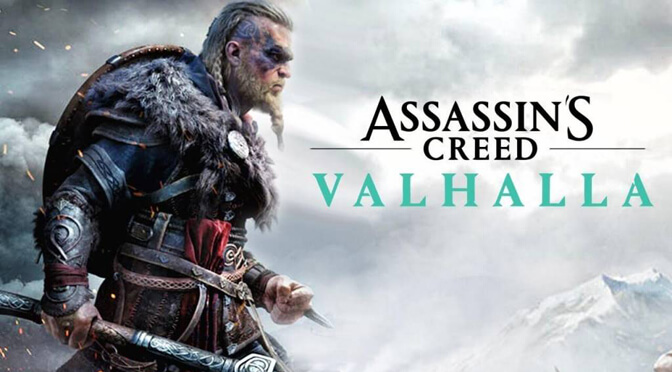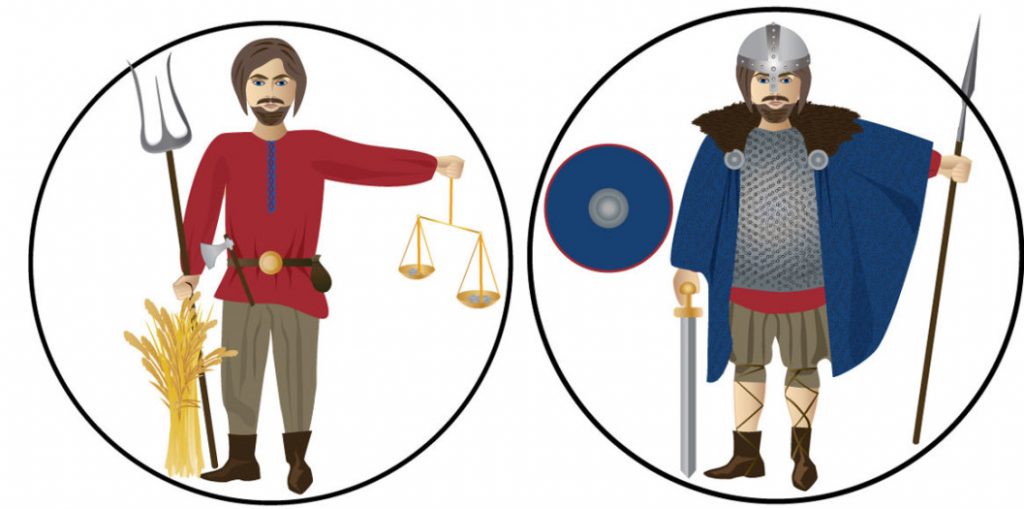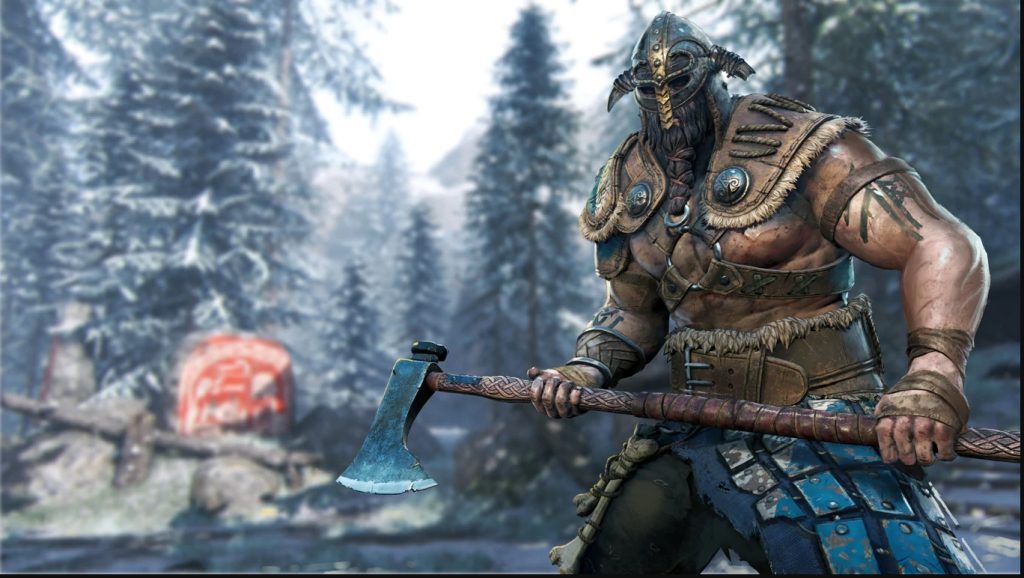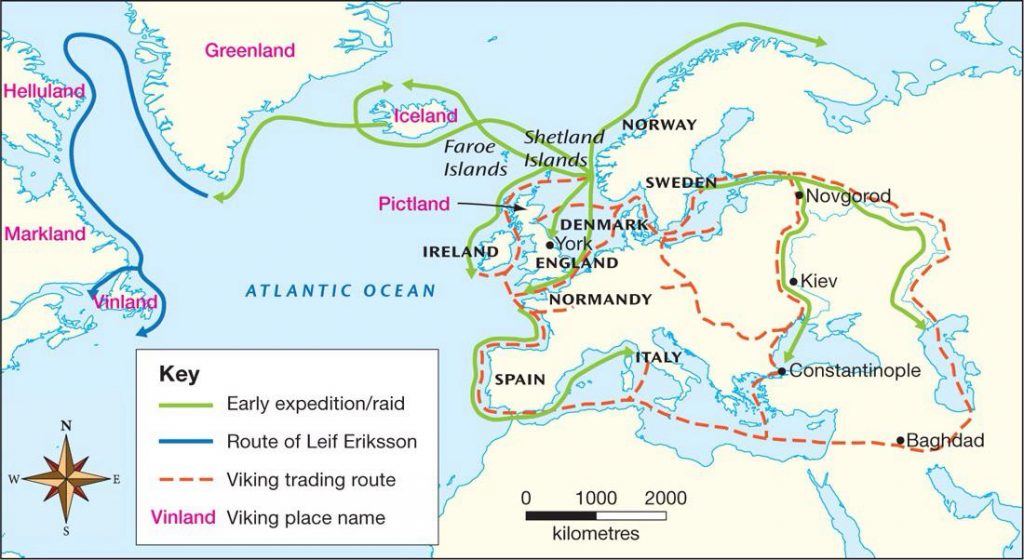Assassin’s Creed Valhalla has now been released! To give their story a bit more context, Ubisoft also made a podcast about the time in which their new game is set. They promise us a ‘new story’ about the Vikings and use experts, comedians and atmospherical music to get this across, so what do we think?
Almost a month ago Ubisoft released a new podcast Echoes of Valhalla on Spotify, that gives some context to their storyline in the newest Assassin’s Creed Valhalla game (that we will be streaming Thursday, November twelfth!!). Ubisoft tells us that this podcast ‘offers the first immersive historical documentary series in audio. Comedians, well-known experts and reconstructed scenes will bring to life the glorious eras of the people of the North, relating the story of the Vikings as you have never heard before.’. So let’s take a look at it and see how that claim holds up.

The podcast focusses on the ‘Viking invasion’ of England. The first episode introduces us to the Vikings and a female voice promises to tell us the story of her ancestors and like all good Hollywood-esque historical ventures she assures the listener that ‘’ I the heiress, wish to tell the tale of what really happened, this is our truth, the truth of the Vikings’’. This is always a sure way to tell your audience everything you’re about to hear is completely 100% true, in opposition to what you previously thought you knew.
The experts
The experts you hear on this podcast are historians and archaeologists, with research focussing on Nordic or English early medieval times. In short, these people clearly know what they are talking about. They start like how an academic paper or book would start, by defining what a Viking actually is; Lucie Malbos: ‘in the beginning being a Viking (…) was a way of making a living, not who you are but what you did’.
All throughout the podcast, the experts try to create a more nuanced picture of ‘Vikings’, as being not the big, strong, frothing-at-the-mouth berserkers, but a multifaceted people that were interested in many more things than just war. Alban Gautier; ‘’we think of Vikings as these towering warriors, but in fact, they were not necessarily stronger than anyone else.’’ Their methods were what made them so disruptive, not their size or strength.

Secondly, they try very hard to rectify some of the misconceptions and myths that are in the collective memory of people (for more Viking myth-busting look here). For example, all throughout the podcast, the experts emphasize the fact that the Vikings set out to get more fertile land and that they were really quite opportunistic. Ryan Lavell ‘They were trying to try their luck basically within the Wessexon kingdom ’ and he tells us that there was no overarching strategy. It is a bit strange that the heiress on the other hand continuously tries to claim Vikings still wanted to ‘’stick with the plan’’ of conquering the entire island and ‘our chiefs have dreamt of a Viking empire’ which is clearly labelled as false by the experts.
The Heiress
The heiress seems deeply attached to the traditional stereotype, and, as a result, ends up contradicting herself on occasion. She tells us some more about how the ‘English’ perceived the Vikings and how that still affects our view of the Vikings. ‘pirates, pagans, bloodthirsty barbarians, our sinister reputation precedes us into the farthest lands. our name has been dragged through the mud, it is easy for enemies to paint a black picture of us.’
Not 30 seconds later she tells us ‘the Norsemen landed without warning to spread chaos like demons straight out of hell, could we be the legions of the apocalypse the Christians believe in?’

First, the podcast wants to paint a not-so-black picture of Vikings, the heiress’ people, because their name has been dragged through the mud, and a moment later she is comparing her people to demons straight out of hell?
We speed 100 years through history and the Vikings never conquered England as the heiress told us they wanted to (as the experts tell us scholars do not believe the original goal was to conquer the entire island). Or did they? According to our heiress, the Vikings still ‘’finally fulfilled their dream of conquering England’’ because a descendant of a jarl was now ruling Normandy and married the descendant of Alfred who ruled over a large part of England.
In a very excited voice, the heiress lists all of the other places the Vikings have ‘conquered’ and how far from their homeland we actually find proof of their presence; ‘overcame the Slavic tribes’, ‘swept through France’ so she adds ‘my people have made the earth tremble’.

But then, this creates a problem. If the Vikings conquered all of those lands, how come that these places do not have more Viking remains? Why is the ‘swept France’ not known as a Viking country? The heiress, as the leading voice of the podcast, has created a bit of a problem here, which she is luckily also is aware of: ‘what is left of the sons of the north, of the Viking, now they have blended into the new kingdoms, abandoning customs and traditions has their trace vanished forever, has their Ragnarok come?’.
She solves this by emphasizing that the Viking simply assimilated immensely well into their new homelands, not by saying that the Vikings were actually quite few in number and might not have strictly conquered all the lands she names.
The ending
The end of this part and podcast is a hopeful(?) message by our heiress: ‘but all is not lost, we have not vanished forgood (…) the main point cannot be seen, but can only be felt. It is a state of mind, the mind of a Viking. And you, you who are listening, if you feel the call of the sea, if you feel the call of the wilderness, the urge to explore new horizons, to overcome obstacles and constantly reinvent yourself, then the spirit of the Viking is not dead! It lives within you’.
Let that sink in for a minute, because there is a lot to unpack here. First of all, ‘Viking’ is not a state of mind, Viking is a job to go out on a raid by ship, as we were told by the experts in part one. Second of all, if you have the urge to ‘overcome obstacles’ and to ‘reinvent yourself’ you are not necessarily in spirit a Viking, but most likely a functioning human-being that is trying to live their lives, as we are all proving in this time of the COVID-19 crisis.
There is absolutely no need to try and claim certain urges or likings belong to a specific ‘people’, not to historical people, not to modern-day people. Especially when your criteria are this broad, this basically reads like a horoscope that is so vague it always applies anyway, or worse, the identification of specific qualities with specific cultures. Thirdly, the ‘spirit of the Viking’ implies that there was actually something that was shared by all ‘Vikings’, which at least is awfully generalising a lot of individuals with their own likes, dislikes and dreams. What about the Vikings that only wanted to get a nice farm going in England and did not feel the ‘call of the wilderness’? What about those Vikings that wanted a better life for their families, mentioned in part 1?
Final Thoughts
Even with serious problems like this, overall I enjoyed the podcast. The experts really tried to rectify some of the misconceptions about the Vikings that are out there and I did learn quite a few new things. They painted a picture of ‘the Vikings’ as a multi-faceted group of people who were not only enormous fighters. The little re-enacted voice scenes reflected this; there were some war-speeches, but there were also people sitting with their families around the fire, people who were talking to each other about trades they made, or Vikings that were talking about making ships.
So that brings me to the heiress. At times I found myself wishing there was a mute button for her, I felt like she was at times actively contradicting the experts of this podcast, just so she could make the Vikings a bit more ‘interesting’.
I just don’t get why you would ask experts to answer questions, use those in your podcast to be able to tell the ‘true’ story of the Vikings and then discredit them by using that voiceover. The contradiction within Ubisoft’s aims is not only noticeable in this podcast, but their recent trailers also show this. In some of them, they try to tell a new, historically accurate, story about the Vikings and in others they try to make the Vikings ‘more exciting’ and they portrayed as killing machines. Perhaps they try to appeal to different audiences, but the completely different stories that then emerge are somewhat off-putting.
Summing up, while Valhalla has received generally positive to very positive reviews from game reviewers, the jury is still out on exactly what sort of historical views on Vikings the game and its associated media, like this podcast, are exactly trying to convey. It doesn’t help that, when it comes to building on and deconstructing stereotypes around Vikings, this podcast tries to have its cake and eat it too.
